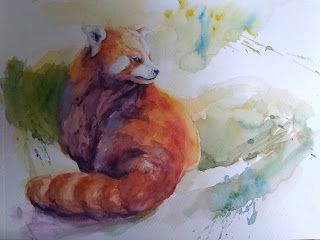Caché
Michael Haneke, 2005
Kids are not free from wickedness. They struggle to keep their castle safe one way or another, which may result in irrevokable pains to their peers, but they tend to easily forget, be happy with secure freedom and move on to their gifted life path. Then, what would you do later if you found out a small leakage in the solid castle you have built and realized the leakage was related to a mischief you had committed when you were in age 6? What could be the most disturbing to you? The intolerable outer force penetrating the wall, sinful bitterness, or your conscientiousness? Sure, the “hidden” memory won’t just pertain to someone’s childhood memory.
The director, who also wrote the script, doesn’t waste time for creating mood or giving pretext. The film goes to the point immediately. Tensions are built among present and past relationships and some are abruptly resolved, but soon the resolution turns out only to be transformed. There is no end in this film. In the thematic concerns or plot-wise, this film resembles his earlier work, “Code Unknown”. But personally the impression that I got from “La Pianiste (The Piano Teacher)” made me anxious to see this film. “La Pianist”, in which the narrative is developed with full of visual subtlties and artistic metaphors, is an unusually intensive film.
Hermann Hesse strictly made no one make a movie out of his novels in order to keep the essential quality of literature, but I think Haneke wouldn’t make a terrible mistake if he made a film based on one of his novels.
Kids are not free from wickedness. They struggle to keep their castle safe one way or another, which may result in irrevokable pains to their peers, but they tend to easily forget, be happy with secure freedom and move on to their gifted life path. Then, what would you do later if you found out a small leakage in the solid castle you have built and realized the leakage was related to a mischief you had committed when you were in age 6? What could be the most disturbing to you? The intolerable outer force penetrating the wall, sinful bitterness, or your conscientiousness? Sure, the “hidden” memory won’t just pertain to someone’s childhood memory.
The director, who also wrote the script, doesn’t waste time for creating mood or giving pretext. The film goes to the point immediately. Tensions are built among present and past relationships and some are abruptly resolved, but soon the resolution turns out only to be transformed. There is no end in this film. In the thematic concerns or plot-wise, this film resembles his earlier work, “Code Unknown”. But personally the impression that I got from “La Pianiste (The Piano Teacher)” made me anxious to see this film. “La Pianist”, in which the narrative is developed with full of visual subtlties and artistic metaphors, is an unusually intensive film.
Hermann Hesse strictly made no one make a movie out of his novels in order to keep the essential quality of literature, but I think Haneke wouldn’t make a terrible mistake if he made a film based on one of his novels.



Comments